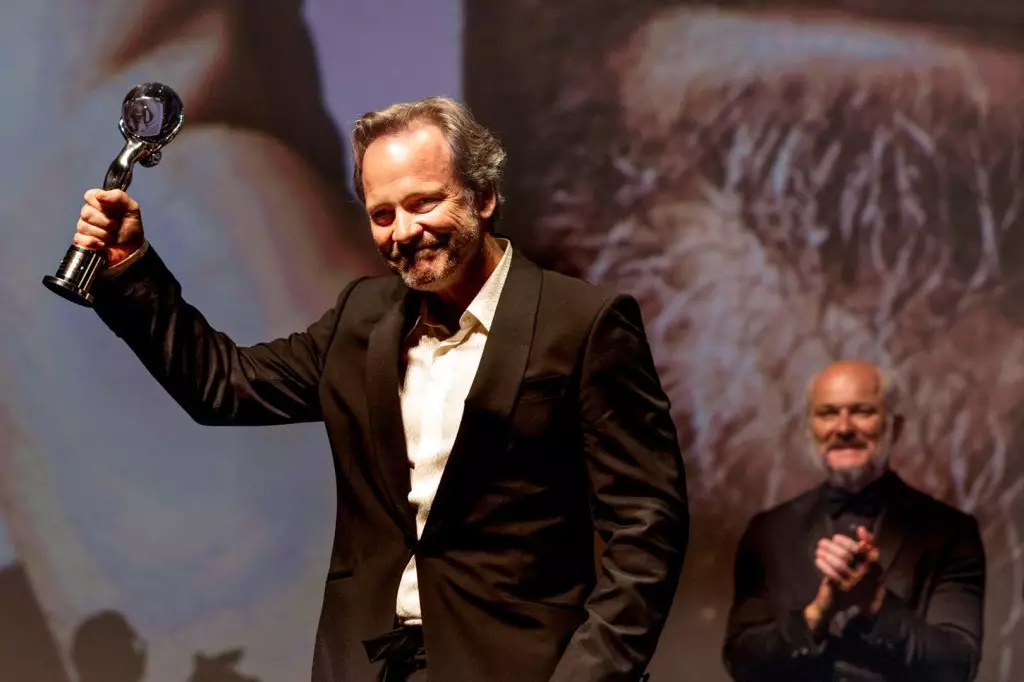Cinema festivals often serve as more than just showcases for artistic achievement; they act as reflections of cultural resilience and collective memory. The recent death of Jiří Bartoška, a revered Czech actor and a guiding force behind the Karlovy Vary International Film Festival for decades, underscores the vital role of visionary leadership in shaping a festival’s identity. His long tenure since 1994, accompanied by his collaborative spirit alongside Eva Zaoralová, embodies the transformative power of dedicated stewardship. A festival’s ability to honor its history while fostering new voices is partly defined by figures like Bartoška, whose influence extends beyond on-screen performances to embodying the festival’s ethos.
Interestingly, the festival’s modest tribute to Bartoška this year suggests a nuanced understanding of remembrance. While they recognized his legacy on opening night with a documentary piece, the omission of elaborate accolades might reflect an understanding that true tribute lies in ongoing cultural impact rather than static awards. This approach exemplifies a broader philosophy that festivals should prioritize fostering dialogue and remembrance over superficial pomp. The trailer’s inclusion of Bartoška’s image, amidst playful homage from local personalities, reinforces the idea that genuine impact resides in authentic memory, not in gilded ceremonies.
The festival’s tradition of irreverence around its trinkets, especially the Crystal Globe, underscores a cultural attitude that challenges conventional reverence. The playful scene where Bolek Polívka shares a toast over an empty chair dedicated to Bartoška exemplifies a celebration of camaraderie and humor as a form of respect. Such acts of irreverence serve to humanize icons, making their legacies accessible and alive through community storytelling rather than static monuments. This approach reflects a deeper layer of cultural identity—one that values community, humility, and the acknowledgment that art is an ongoing conversation rather than a static monument.
Art as Expression in Challenging Times
The elaborate interpretive dance and avant-garde performances at the festival further demonstrate cinema’s kinship with experimental arts. This year’s staging, with haunting imagery and industrial soundscapes reminiscent of surrealist worlds, hints at a collective introspection about society’s current state. The Lynchian aesthetics—striking, ambiguous, and often unsettling—serve as a mirror to contemporary anxieties. The festival maintains its tradition of openness to multiple interpretations, emphasizing that art should provoke reflection rather than prescribe meaning, especially in tumultuous times.
This openness to diverse expressions offers a powerful counterpoint to the often reductive narratives prevalent in mainstream media. It champions the notion that cinema and related arts are vital tools for grappling with complexities, fears, and hopes. Art’s capacity to confront uncomfortable truths and inspire discourse is essential, especially when societal divisions seem insurmountable. Festivals like Karlovy Vary serve as a sanctuary for such explorations, promoting the idea that creative expression is inherently linked to cultural resilience and renewal.
Power of Film Festivals to Foster Human Connection and Resistance
The speeches by two distinguished awardees—Vicky Krieps and Peter Sarsgaard—highlight fundamentally different, yet interconnected, aspects of cinema’s significance. Krieps, candid and humorous, emphasizes that moments of vulnerability and authenticity define the true spirit of filmmaking and its cultural importance. Her remarks suggest that cinema’s power lies in its universality—crossing borders, languages, and social divides—and in its capacity to provide a space for hope, dreaming, and emotional healing.
Krieps’s reflection on her own background—an outsider to “coolness”—resonates with many who feel marginalized in society. Her message that film is a vessel for dreams and remembered emotion rather than superficial accolades underscores cinema’s potential to elevate marginalized voices and foster empathy. By stressing the importance of saving cinema from neglect and censorship, she advocates for a continued commitment to arts education and cultural preservation—elements essential in resisting cultural homogenization and political suppression.
Contrastingly, Peter Sarsgaard’s speech situates filmmaking within a larger socio-political context, asserting that collective action and unity are moral imperatives amid rising divisions. His call for solidarity—highlighting the importance of community support within the arts—serves as a rallying cry against societal fragmentation. His invocation of Václav Havel’s words underscores that in times of ideological and political polarization, unity in human endeavors such as cinema is a form of resistance, a way to oppose forces seeking to divide us.
Sarsgaard’s emphasis on the interconnectedness of art and societal well-being pushes us to reconsider how cultural institutions function as bastions against discord. His recognition that “enemies” of unity—such as factionalism and intolerance—are the true threats to societal harmony elevates the festival’s role from mere cultural celebration to a sphere of activism. Group efforts in artistic creation and appreciation, he suggests, are essential not only for individual growth but for collective survival in a fractured world.
The Enduring Power of Cinema to Inspire and Unify
Both speeches and the festival’s diverse artistic expressions point towards a crucial truth: cinema and allied arts are uniquely situated to challenge societal norms, inspire individual dreams, and forge collective resilience. The festival’s playful yet profound traditions—such as mockingly destroying the Crystal Globe or staging avant-garde performances—serve as reminders that art need not always conform, that questioning authority and convention remains vital.
In an era where divisions seem to be amplified by social media and political upheaval, the role of culturally rooted events like Karlovy Vary becomes even more significant. They are not just venues for entertainment but are crucibles for reflection, reconciliation, and even resistance. The festival’s commitment to showcasing diverse voices and challenging aesthetic boundaries demonstrates an understanding that real cultural strength lies in collective expression and shared vulnerability.
Ultimately, the festival embodies an optimistic truth: that art, when driven by courage and unity, can transcend differences and foster worldwide compassion. As figures like Bartoška, Krieps, and Sarsgaard remind us, cinema isn’t merely about storytelling—it is a revolutionary act of hope, a testament to our capacity to dream beyond division, and a rallying point for collective humanity.

